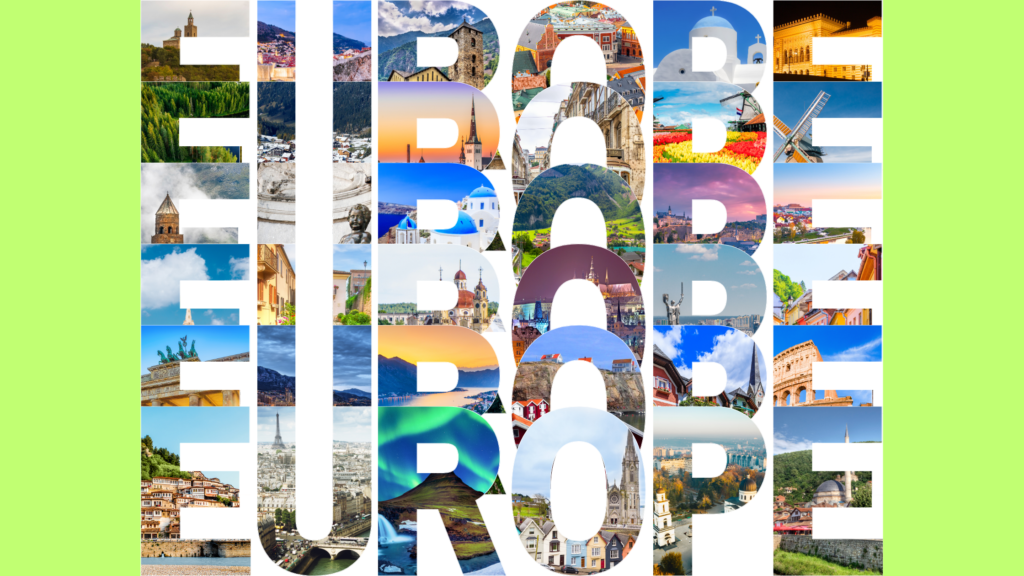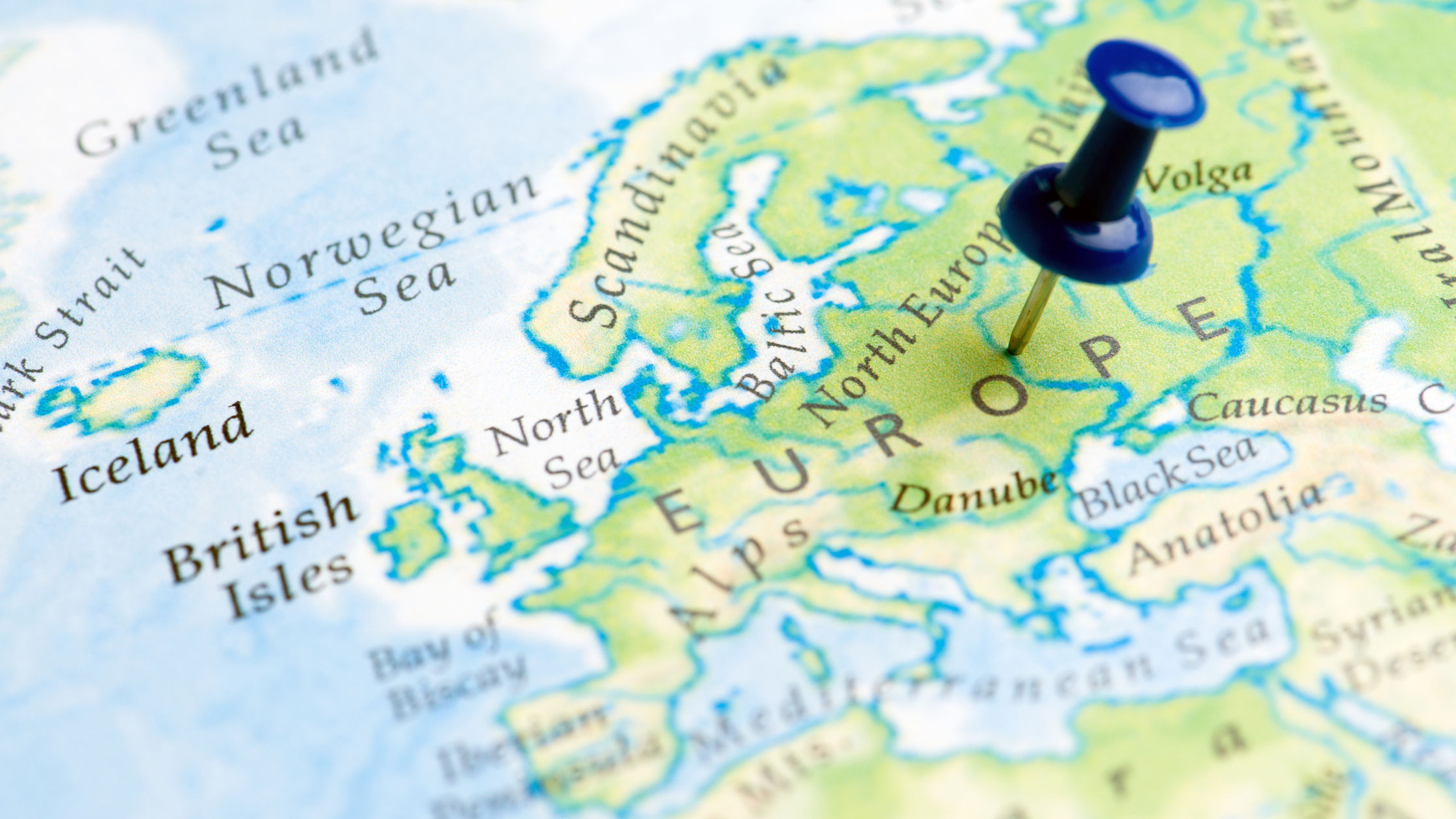
Tired of the doom and gloom of British headlines? You’re not alone. Let’s take a light touch virtual tour of Europe and see what’s happening in each country. But first, let’s highlight some positive news from the UK:
Good News from the UK:
UK: Scientists develop groundbreaking Alzheimer’s drug.
- The Details: A new medication shows promise in slowing the progression of the disease.
Wales: Sees a boost in sustainable tourism.
- The Details: Eco-friendly travel initiatives are attracting visitors and supporting local communities.
Northern Ireland: Experiences a surge in film and television production.
- The Details: Major productions are choosing Northern Ireland as a filming location, creating jobs and boosting the economy.
Scotland: Renewable energy sector continues to thrive.
- The Details: Wind, wave, and tidal power projects are expanding, making Scotland a leader in green energy.
Isle of Man: Isle of Man’s tourism industry experiences a strong rebound.
- The Details: The island’s unique culture and natural beauty are attracting more visitors.
Jersey: Jersey’s finance sector remains resilient.
- The Details: Jersey’s financial services industry adapts to changing regulations and continues to attract international clients.
Guernsey: Guernsey’s economy benefits from a strong financial services sector and growing tourism.
- The Details: The island is diversifying its economy while maintaining its reputation as a financial hub.
England: England’s tech industry continues to expand.
- The Details: London’s tech scene is a major driver of economic growth, attracting investment and talent from around the world.
A Whirlwind Tour of Europe:
There’s some debate about the exact number, but generally, there are considered to be 44 to 50 countries in Europe, depending on the definition and inclusion of certain territories.
- The United Nations recognises 44 countries in Europe.
- Some sources include additional territories, like Cyprus, Kazakhstan, Turkey, and the Caucasus countries, bringing the total closer to 50.
- The European Union (EU) currently has 27 member states.
Albania: Tourism is booming, but the country still grapples with high unemployment and political instability.
Andorra: This tiny principality enjoys a high standard of living, but rising costs and climate change are concerns.
Armenia: Focusing on political reforms and economic recovery while managing ongoing tensions with Azerbaijan over the Nagorno-Karabakh region.
Austria: Inflation and energy costs are challenges, but Vienna remains a cultural hub and Austria’s tourism sector is thriving.
Azerbaijan: Experiencing economic growth driven by its oil and gas sector while addressing reconstruction efforts in the Nagorno-Karabakh region and political stability.
Belarus: Political repression and economic sanctions continue to impact the country.
Belgium: Political tensions between the Flemish and Walloon communities persist, while the country faces economic challenges.
Bosnia and Herzegovina: Ethnic divisions and political instability hinder progress.
Bulgaria: Corruption and economic inequality remain major issues.
Croatia: The country is enjoying a surge in tourism, but inflation and emigration are challenges.
Cyprus: Divided since 1974, Cyprus is working towards reunification while facing economic difficulties.
Czech Republic: A strong economy and low unemployment are positive signs, but inflation is a growing concern.
Denmark: While known for its happiness, Denmark faces housing shortages and debates over immigration.
Estonia: A tech-savvy nation, Estonia is embracing digital solutions, but it also struggles with rural depopulation.
Finland: Finland boasts a strong education system and social welfare, but it’s grappling with an aging population.
France: Pension reforms and cost of living protests are ongoing, but the country celebrates its cultural and sporting achievements.
Georgia: Political instability and tensions with Russia continue to pose challenges.
Germany: Europe’s economic powerhouse faces inflation and supply chain issues but remains a leader in green technology.
Greece: Recovering from its debt crisis, Greece sees a resurgence in tourism, but high unemployment persists. For most of us, working five days a week is more than enough. How about six?
Hungary: Political polarisation and concerns over democratic backsliding are ongoing issues.
Iceland: A popular tourist destination, Iceland faces environmental concerns due to its reliance on geothermal energy.
Ireland: A thriving tech sector contrasts with a severe housing crisis and high living costs.
Italy: A new right-wing government navigates economic challenges and political instability.
Kazakhstan: Prioritising economic diversification and modernisation, focusing on reducing dependence on oil and gas revenues and enhancing public administration.
Kosovo: This young nation struggles with unemployment and political tensions with Serbia.
Latvia: A growing economy faces labor shortages and an aging population.
Liechtenstein: This wealthy micro-state is a financial hub, but it faces pressure to increase transparency.
Lithuania: Economic growth is strong, but concerns remain about income inequality and emigration.
Luxembourg: One of the wealthiest countries in the world, but high housing costs are a challenge.
Malta: Tourism drives the economy, but overdevelopment and environmental concerns are growing.
Moldova: Political instability and economic hardship plague this former Soviet republic.
Monaco: A playground for the rich and famous, Monaco faces challenges related to climate change and sustainability.
Montenegro: Tourism is key to the economy, but corruption and organised crime are ongoing issues.
Netherlands: A prosperous nation, the Netherlands grapples with housing shortages and debates over immigration.
North Macedonia: The country is making progress on its path to EU membership but faces economic challenges.
Norway: Oil wealth provides high living standards, but rising costs and environmental concerns are issues.
Poland: A strong economy is marred by political divisions and rule-of-law concerns.
Portugal: Tourism drives economic recovery, but high debt levels and inflation pose challenges.
Romania: Corruption and infrastructure deficiencies hinder development, but economic growth is steady.
Russia: The ongoing war in Ukraine has severe consequences for Russia and the wider region.
San Marino: This micro-state enjoys a high standard of living but faces challenges related to tourism management.
Serbia: Tensions with Kosovo and a struggling economy are ongoing concerns.
Slovakia: A stable economy and low unemployment contrast with political instability and corruption concerns.
Slovenia: A high standard of living and a strong economy are marred by concerns over media freedom.
Spain: Tourism rebounds, but high unemployment and regional tensions persist.
Sweden: A prosperous nation with a strong welfare state, Sweden grapples with gang violence and integration challenges.
Switzerland: A global financial centre, Switzerland remains neutral but faces pressure on its banking secrecy laws.
Türkiye (Turkey): High inflation and political polarisation create economic and social challenges.
Ukraine: The ongoing war with Russia has caused immense suffering and destruction, but the Ukrainian spirit of resilience remains strong.
The Takeaway: A Continent of Contrasts
Europe is a continent of contrasts, where economic prosperity and social progress coexist with political tensions and ongoing challenges. While the headlines may focus on the negatives, it’s important to remember that there are positive developments and reasons for hope in every corner of Europe.
From the UK to Ukraine, We’re Connected
As we witness the events unfolding across Europe, it’s clear that our destinies are intertwined. The challenges faced by our European neighbours – from economic instability to political conflict – have a ripple effect that can be felt here in the UK.
By understanding the complexities and nuances of each country, we can foster a greater sense of empathy and solidarity. We can learn from the successes of our neighbours and offer support in times of need. And perhaps, by looking beyond our own borders, we can find new perspectives and solutions to the challenges we face at home.



Leave a Reply